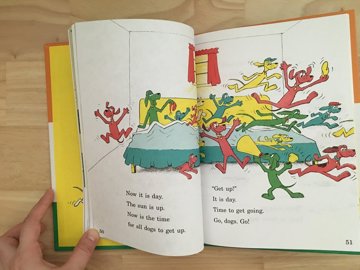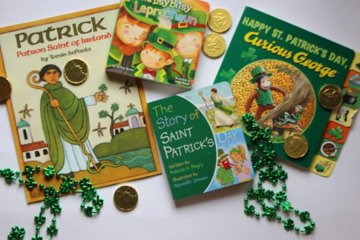How to Encourage Your Kids to Love Reading

As soon as you announce you’re expecting, the advice starts flooding in. And arguably it doesn’t stop until your kids go off to college. From when to you cut the pacifier to tips on self-soothing. “Shorten nap times for a better night’s sleep.” “Long naps are crucial for development.” It can all be confusing and frustrating to navigate.
So of course, we’re here to give you more advice. But this one is pretty irrefutable:
Read to them.
Reading to your kids is great for brain development and can even be used as a soothing technique. Its sparks creativity and fuels their imaginations. Reading yields tons of benefits, starting at an early age. So, we’ve put together some easy tips on navigating the wonderful world of reading to your kids.
1. Content is king
You might think reading Pride and Prejudice to your little-ones can turn them into a baby genius. But unfortunately, there’s no evidence there. From one to three-years-old your child’s brain is developing rapidly, so it’s important to read at their level of comprehension. Picture books are recommended so your child is not only taking in the story through words, but through images too. Illustrated books are an easy tool to help fuel their imaginations. Look for books they will understand, but also teach them something new. Like a word they’re never heard before. And get excited when they ask questions to encourage their curiosity and inquisitiveness.
Starting early and reading regularly is important. Studies show regularly reading to children can produce a soothing effect in kids and actually tighten the bond between parent and child. Reading to them has proven results, like happier and better behaved kids, which is a win for everyone.
2. Get them involved
Engage with your child as you read to them. Point to common words as you read them aloud to promote word recognition. Point to pictures when you’re reading about them so your child can get a mental picture of what you’re hearing. Let them turn the page. Keeping them involved will keep them engaged in the story.
As soon as they’re old enough, let them pick the book you read. Plan weekly library visits and let them pick out the books to get them invested in it. And always treat reading as a reward, not a punishment. Creating negative connotations for reading will likely result in a lifetime dislike of reading. Try using a book as an incentive to pick up their room or get ready for bed. The goal is to get them to look forward to reading.
3. Go beyond reading
This one requires a little more effort, but it’s so worth it. When reading, try and use different voices for different characters. Act out parts of the story and encourage your child to do the same. Use props if you want to get serious about it. This is the part that help build strong bonds between the two of you. And chances are you’ll both end up having fun.
You don’t have to do this every time you read; you can save it for special occasions. But you might just have so much fun with it, you start doing it more often.
We know that as a parent you juggle a lot in the week. Planning meals, pick-ups, doctor visits and sports can seem like too much that something like reading gets low priority. Which is okay. Encourage another family member to read to them. Or once they’re old enough, encourage independent reading time.
For more tips on child development, visit our blog, like us on Facebook or follow us on Instagram.



